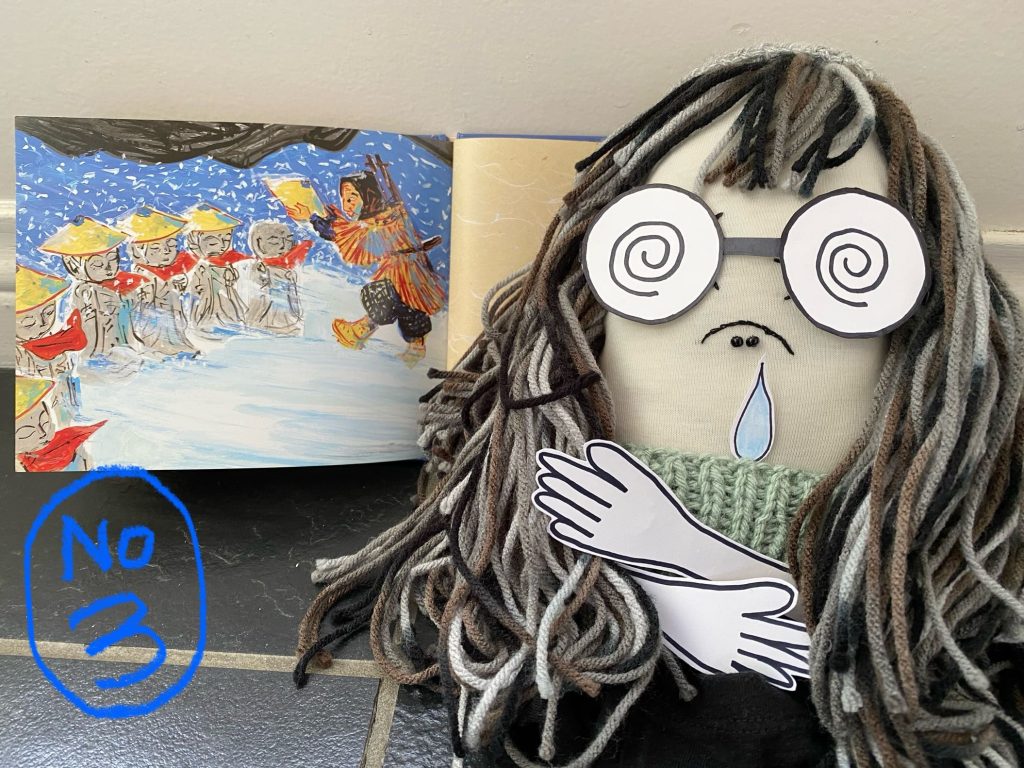
What emergency cold-weather gear should I prepare for a blackout?
“I have a home generator. I think I am OK!”
“As long as I don’t need to evacuate from my home, I will be fine.”
“I will gather firewood from a nearby mountain!!”
After a big disaster, if you don’t need to evacuate from your home, you will be lucky.
How lucky?
Well, it depends on how well you prepared. If there is a major power outage, a blackout on an unprecedented scale across town, can you ask your neighbors to give you firewood? If your home is too cold, because you did not prepare any extra fuel, would you be comfortable asking your neighbors to let you stay at their place?
Do you really think that they will be happy to give you shelter, when their emergency supplies are limited?
On the other hand, how would you feel if your underprepared neighbors asked for some of the supplies you dutifully set aside for an emergency?
In a disaster-stricken area, everybody needs help, and people who didn’t prepare for the disaster will need even more help. Everyone will be anxious.
If I’m being totally honest, I don’t want to help my neighbors,
especially when my supplies are limited (and they’re always limited).
And because I know how I would feel, I don’t want to ask them for help.

Nowadays, we use lots of electronics in the home – devices and appliances. We are used to having them and we have become desensitized to them. When we are preparing our emergency cold-weather gear for a potential blackout, we need to consider these electronics.
We have become dependent upon them, and we often take them for granted. We forget they are even there. It will be easy to miss some critical gadget or tool or connector that we will need later, when the power goes out. Like the matches we will need to start our gas stove, or the coffee filters for our emergency drip coffee maker, or the extra batteries for the flashlight.
We rely on electricity more in daily life than we might think. Try to imagine yourself in a blackout, and do a mental walkthrough of everything you might need to survive in your home. Think through your entire day. You will realize just how pervasive and ubiquitous these electronics are. You might even get a little scared of a blackout.
If you live in an area with harsh winters, you already have better cold-weather gear and more cold-weather experience than I do. If you have any advice for me, I welcome it!! You might not need to buy any new things.
Just make sure, even if it’s not wintertime, that you can quickly access your cold-weather gear.
Key points
▪︎ Being creative with your clothes, and deciding which clothes to buy
If your area has 4 distinct seasons, you should set up emergency clothes for both winter and summer seasons. Depending on the climate in your area, you will need to set up appropriate clothes for each season. For growing children and elderly, you will need to change the clothes they have in storage, more frequently.
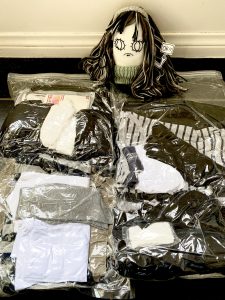
▪︎ Decide which room to stay in.
Do not use your whole home in an emergency. Pick one room to warm up and save fuel that way. Close off unused rooms and block drafts with towels under the doors. Also, if you have a camping tent and enough space, consider setting it up temporarily inside to capture and share body heat.
▪︎ Prepare alternative heat sources
Kerosene heaters, firewood stoves, propane burners and gas generator are all viable options. Stock up on fuel and store it appropriately: wood in a dry place, flammable fuel in a safe place. Also, make sure you have a fire extinguisher!!
▪︎ Be careful of carbon monoxide poisoning.
Do not forget this. Your electric exhaust fan will not function in a blackout.
▪︎ Insulate windows and floors
Have weather sealing tape or window insulation kits for keeping the cold out. Newspapers, bubble wrap, and cardboard can be used to quickly insulate windows and floors, temporarily, in a pinch.
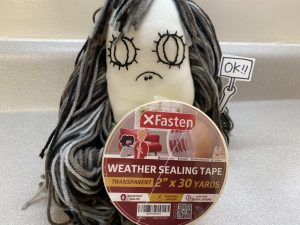
▪︎ Wear rubber gloves.
Wet hands can be bad news when it’s cold and the power goes out. Use rubber gloves to do your chores without getting your hands wet.
These are my choices for quick heating sources.
★ Butane canister heater: Please check my post # 21, which talks about butane canisters.
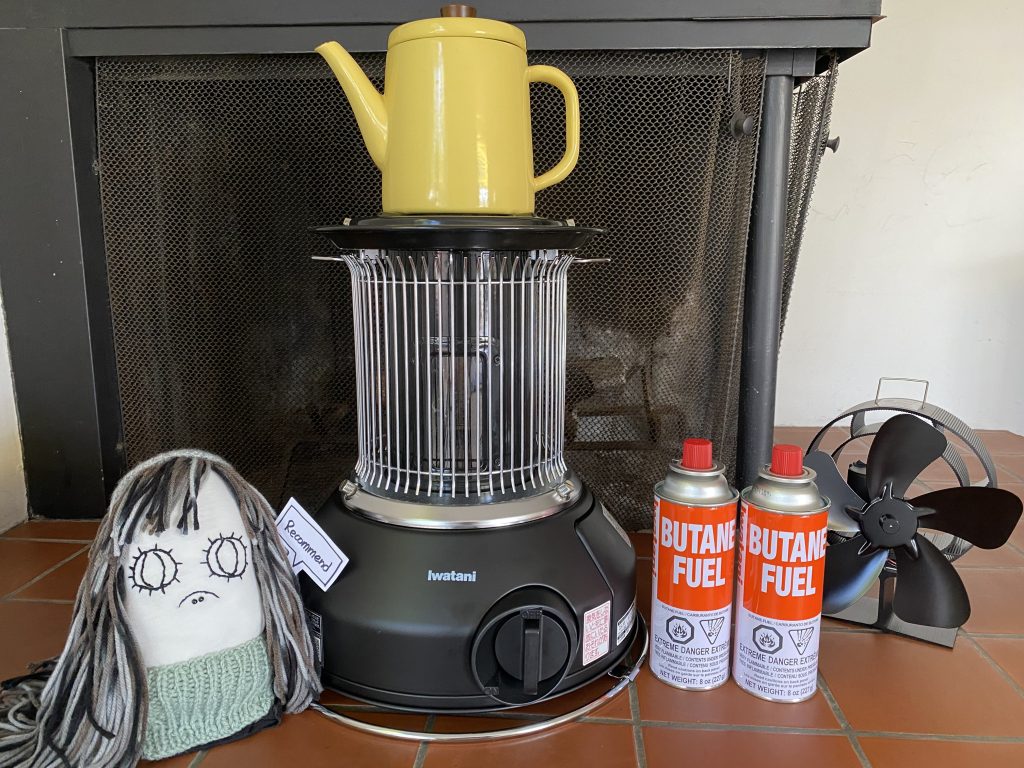
★ Heat pad (Hokkairo): These are very convenient!! Put these in your shoes to warm up your feet.
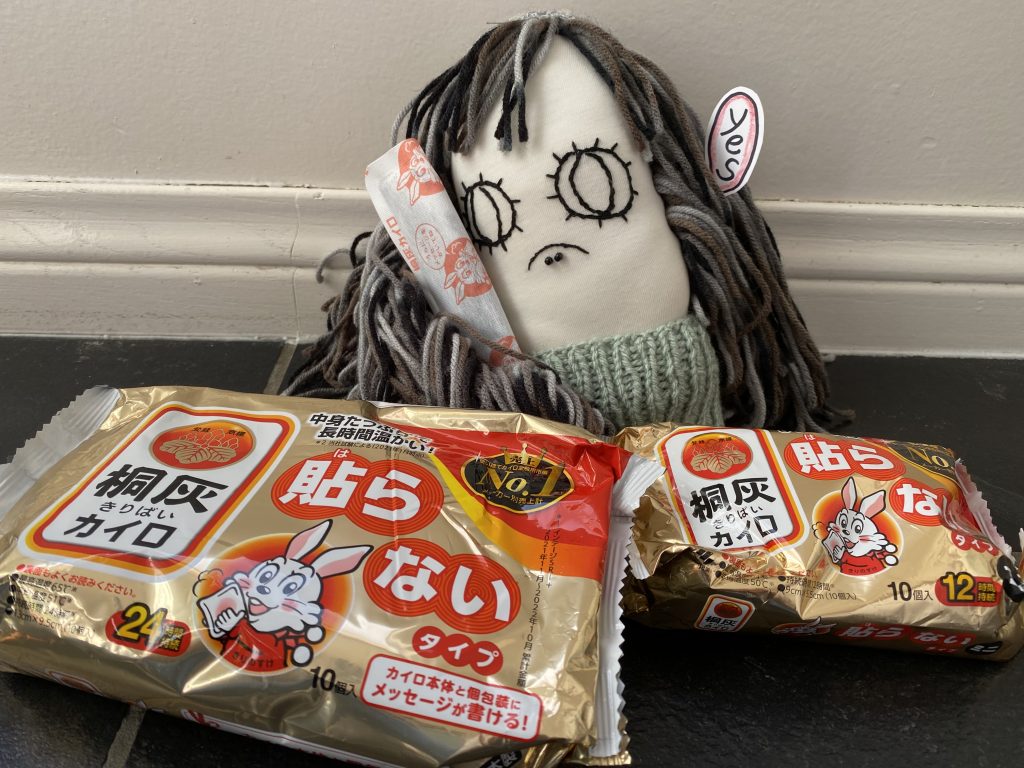
★ Hot water pad: We can reuse hot water. Also, it can be a cold pad in the summertime.
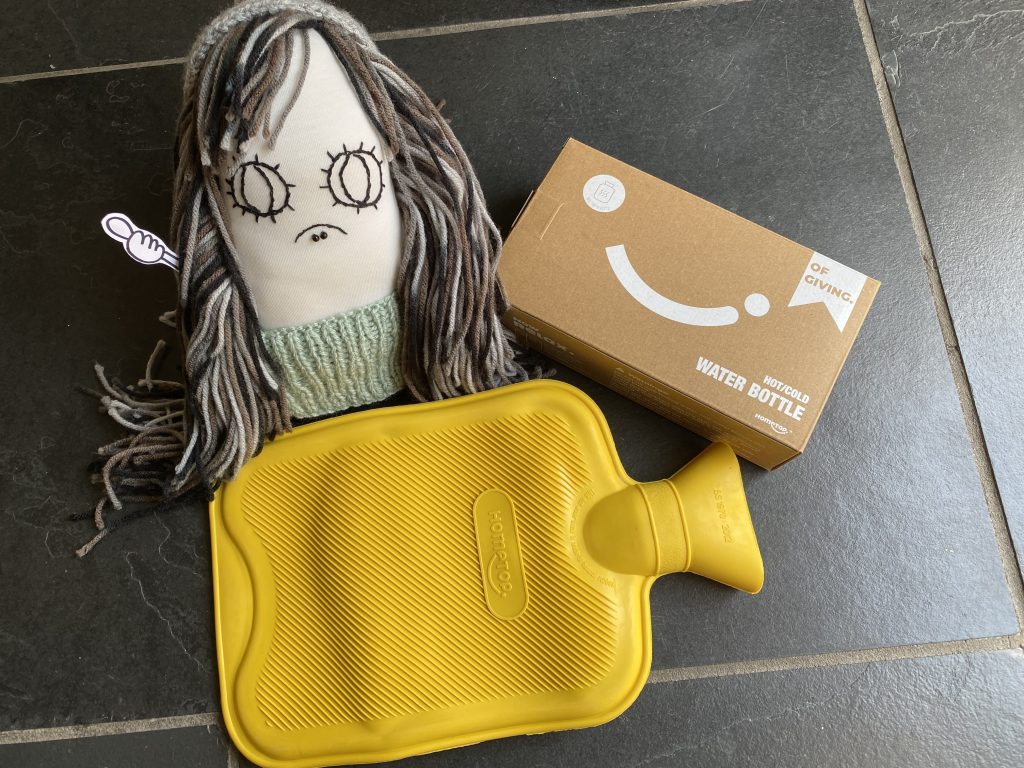
For most types of emergencies, our own home is the best place to ride out the crisis. But if your home is damaged (like if the windows are broken by the wind, or your roof damaged by a fallen tree) then you might need to take some quick action in order to stay, safely. The right preparation work, in advance, will make all the difference. And haste makes waste. Preparing for a blackout in advance is an essential strategy. The time to calmly prepare for emergencies is now.
See you next time.
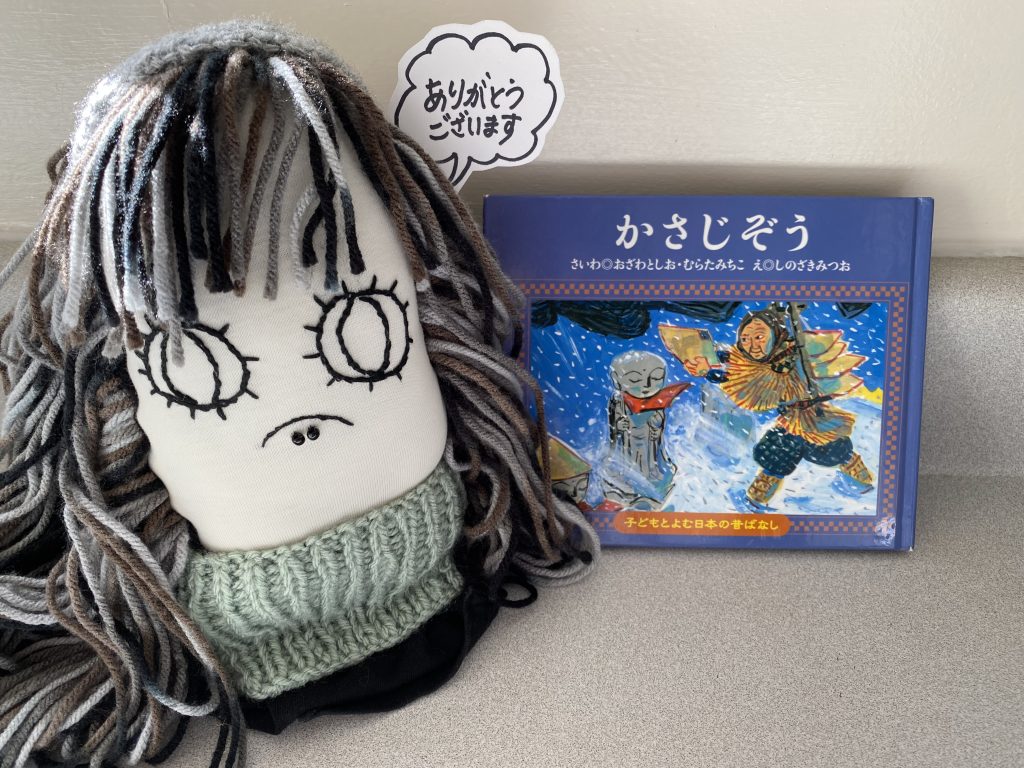
引用文献:くもん出版 『かさじぞう』
Remember, “Protect your life by yourself” (自分の命は自分で守る). You need to survive first, and then you need your emergency supply. No matter how well you prepared your emergency supplies, if you die, then all of your preparations will have been for nothing. First and foremost, keep your health up all the time. Build your stamina so that if you need to, you can evacuate as quickly as possible. Stay healthy.